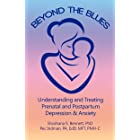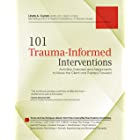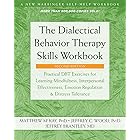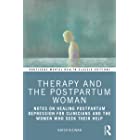Buy $30.39
| Digital List Price: | $33.99 |
| Kindle Price: | $30.39 Save $3.60 (11%) |
| Sold by: | Amazon.com Services LLC |
Rent $13.25
Today through selected date:
Rental price is determined by end date.
- Highlight, take notes, and search in the book
Your Memberships & Subscriptions

Download the free Kindle app and start reading Kindle books instantly on your smartphone, tablet, or computer - no Kindle device required.
Read instantly on your browser with Kindle for Web.
Using your mobile phone camera - scan the code below and download the Kindle app.

Perinatal Mental Health: The EPDS Manual 2nd Edition, Kindle Edition
- ISBN-13978-1909726130
- Edition2nd
- PublisherRCPsych Publications
- Publication dateFebruary 1, 2014
- LanguageEnglish
- File size6546 KB
Kindle E-Readers
Fire Tablets
Fire Phones
Customers who bought this item also bought
 Beyond the Blues: Understanding and Treating Prenatal and Postpartum Depression & AnxietyShoshana BennettKindle Edition
Beyond the Blues: Understanding and Treating Prenatal and Postpartum Depression & AnxietyShoshana BennettKindle Edition
Editorial Reviews
Review
About the Author
About the authors:
John Cox - Emeritus Professor of Psychiatry, Keele University, Stoke on Trent.
Jeni Holden - Retired psychology lecturer and former health visitor, Edinburgh.
Carol Henshaw - Senior Lecturer in Psychiatry, Keele University, Stoke on Trent.
Product details
- ASIN : B00J8KXNS4
- Publisher : RCPsych Publications; 2nd edition (February 1, 2014)
- Publication date : February 1, 2014
- Language : English
- File size : 6546 KB
- Simultaneous device usage : Up to 4 simultaneous devices, per publisher limits
- Text-to-Speech : Enabled
- Screen Reader : Supported
- Enhanced typesetting : Enabled
- X-Ray : Not Enabled
- Word Wise : Not Enabled
- Sticky notes : On Kindle Scribe
- Print length : 368 pages
- Best Sellers Rank: #2,751,094 in Kindle Store (See Top 100 in Kindle Store)
- #405 in Midwifery
- #830 in Obstetrics & Gynecology (Kindle Store)
- #1,161 in Child Psychiatry
- Customer Reviews:
About the author

Discover more of the author’s books, see similar authors, read author blogs and more
Customer reviews
Our goal is to make sure every review is trustworthy and useful. That's why we use both technology and human investigators to block fake reviews before customers ever see them. Learn more
We block Amazon accounts that violate our community guidelines. We also block sellers who buy reviews and take legal actions against parties who provide these reviews. Learn how to report
-
Top reviews
Top review from the United States
There was a problem filtering reviews right now. Please try again later.
There was also much offered in the way of detail other interesting facts and research such as; people who experience antenatal/postnatal depression having 40% likelihood of developing a major depressive disorder later in life, and the effects of perinatal mood disorders ON and the incidence of postpartum mood disorders in the fathers/partners. A lengthy section that speaks to the effects that antenatal and postnatal depression has on the fetus, neonate and the affected child's developmental experience later in their lives. It specifically discusses attachment and bonding issues, neglect (unintentional) and how the developing brain responds reflexively to the elevated cortisol and other stress related chemicals. Interestingly there was also a great conversation around perinatal mood dysfunction in the partners of the birthing people, with direct quotes from interviews that are anecdotal but relevant. One study mentioned indicated that 9% of the partners experienced depression by 6 weeks postpartum, and an additional 5.5% by 6 months postpartum. Partners of people with perinatal mood disorders are statistically more likely to fall into that category, indicating that the birthing person’s mood disorder significantly affects the partner. It also indicated that lack of support from the partner can increase the likelihood of perinatal mood disorders in birthing people.
Guidelines on identifying postnatal depression by using the EPDS was explained, and it was exemplified that the EPDS was easy to use and can be administered by community health workers that are not trained specifically in mental health. It goes on to discuss how to refer for confirmation, if the EPDS indicates that depression is a possibility. While it does not go into detail about treatment options for postnatal depression, it does enter into a conversation about how to manage referral for treatment. There was a large section that specifically discussed caring for people with postnatal depression in rural areas, and antenatal prevention, screening, support and its effectiveness in reducing depression and other mental health disorders in the postnatal period. One thing I really appreciated was a conversation around some alternative therapies for antenatal and postnatal mood disorders, that included CBT, massage, group therapy, couple’s activities, bonding activities including infant massage and the development of intervention for partners with depression.
A thorough history of the development of the EPDS was included as well as a comparison with the other screening tools available and their ease of use and effectiveness. Sub sections discuss ease of use, readability, reliability and the scale’s ability to be used in other clinical situations that are not specific to perinatal or postnatal health. The scale has been used widely worldwide for many years and has been translated into 57 languages. Great detail was paid to translation in content as well as context so that the meaning of the questions was consistent across languages and cultures. The section of validation and cut off scales was thorough and left no question on how to use the tool for screening and evaluation for referral. Language was critically appraised across the spectrum to create a tool that was well received by participants, easily administered by many levels of practitioners, and easy to assess. There is clear discussion of the legitimacy of using the tool for routine screening in pregnancy and the postnatal period. Some trials mentioned dealt specifically with no—mental health providers administering the screening, and the results were encouraging, and included discussion of many countries including the US who performed encouraging trials with home visitors administering the screenings.
The last two chapters specifically deal with training issues, modes of referral and the debate around routine screening and the necessity for specialists who work with perinatal mood dysfunction. It is clear that while we have come a long way in learning about, evaluating and treating perinatal mood disorders, we have so much more to do in an interprofessional capacity to ensure that no people fall through the cracks and that the evaluations are being made in a timely fashion, including the partners of the birthing people. The last chapter discusses step by step how to use the EPDS, with clear, concise instructions that are difficult to misunderstand and are written for any provider to use. It covers client reluctance to disclose or participate, and how and when to take action on high scores, including on disclosures to self-harm.
I personally walked away with so much hope from reading this book that midwives in community birth settings working with all kinds of clients can be offered this screening tool, and possibly get help quicker and more smoothly reducing the stress or the risk that depression, anxiety or inclinations to self-harm go undetected until it becomes a crisis. Currently we are doing a training module in my practice around perinatal mood disorders and trauma-informed care. We are developing a practice guideline for screening with the EPDS and a state-wide resource guide for referral. I feel like any midwife in community or clinical practice would benefit greatly from the information included in this book. My only critique is that it was not written with inclusive language and assumed the partners were all *fathers*, but I know that change is coming.







